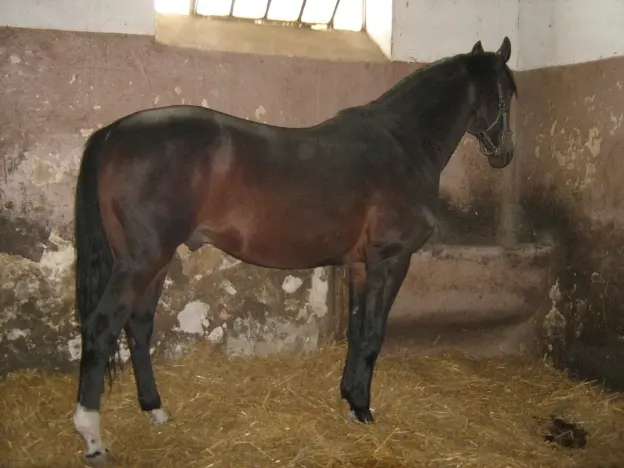Intro
The East Bulgarian Horse is common throughout Eastern Europe, although not so well known in the rest of the world. However, they are starting to make a name for themselves in a number of equestrian sports, including dressage and show jumping. Recently the primary focus of this breed is creating a quality sport horse.
Origins
Horses have long played an instrumental role in the life and society of the people in Bulgaria, from transportation to war they were an essential element. In fact people came to the Balkin peninsula on horseback 1300 years ago.
The East Bulgarian horse is of relatively new creation and comes from the stud farms of Kabiuk (near Sofia). Their development began late in the 19th century using local animals, Arabian, Anglo-Arabian and Thoroughbred bloodlines. The goal was an halfbred horse that was suitable for rigging, racing and work. The breed was officially recognized in 1951.
Since then breeding programs have had their ups and downs, however recently the bloodlines of the East Bulgarian Horse have become more important within the culture. The local stock is now continuously improved using Arabian, Thoroughbred, Trakehner, Hanoverian and Haflinger blood. According to the DAD-IS as of 2024 there were 158 left.
Features
Average height 15.3 – 16 hands
Incredibly tough, versatile and athletic
Physique
Head is light and elegant with a straight profile
Eyes are large and lively
Neck is long and straight
Chest is full and deep
Shoulder is sloped and muscular
Legs are slender and solidly built
Hooves are well-shaped and tough
Traditional Colors
Solid colors
Temperament
Wise and kind
Energetic and attentive
Use
Transportation
Racing
Riding animal
Light farm work
Competition animal
Useful Links
Association for the Eastbulgarian horse
